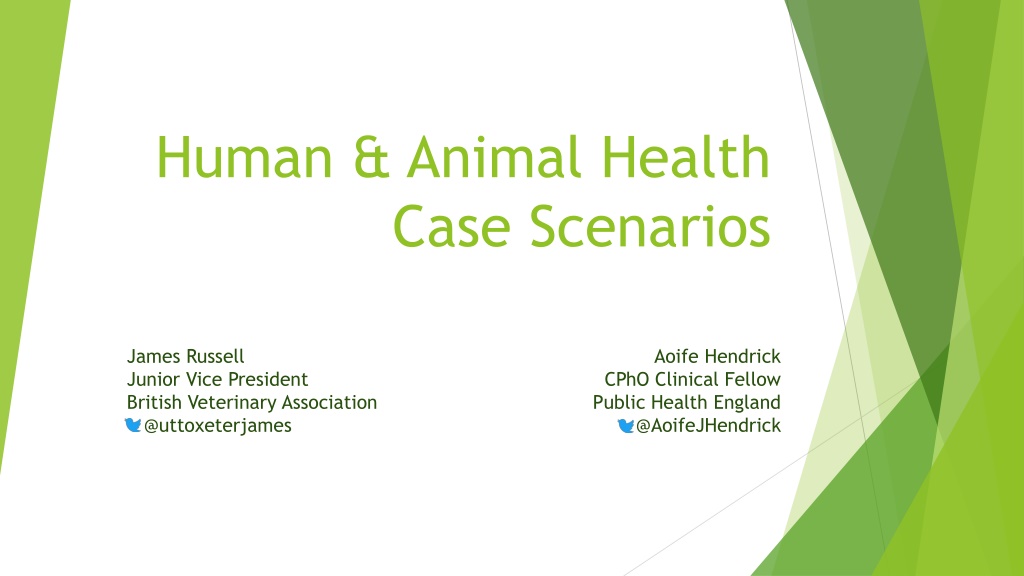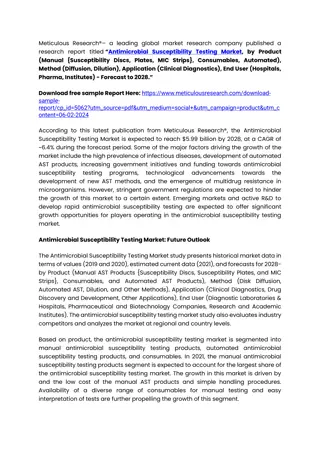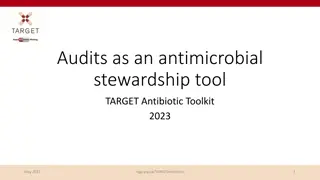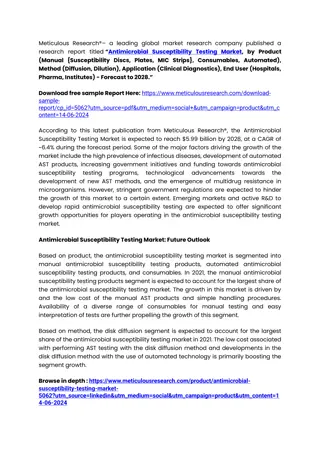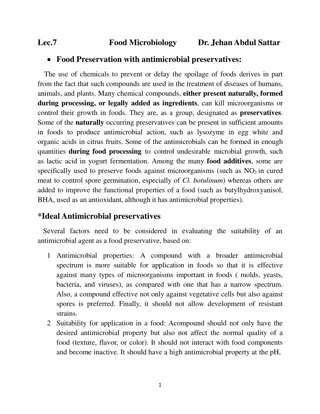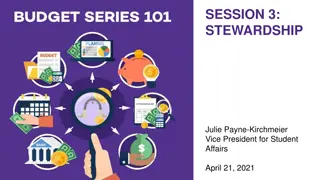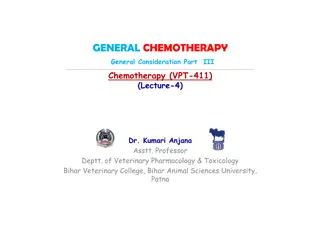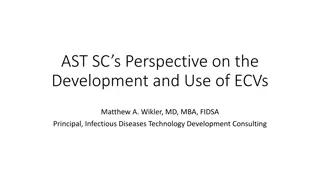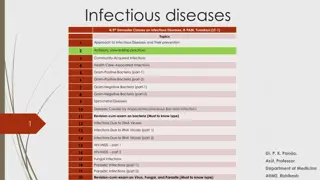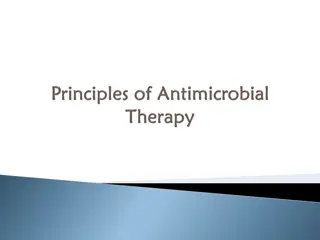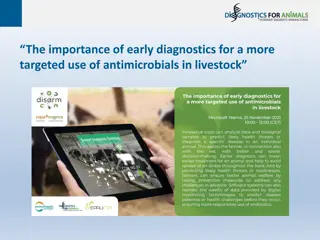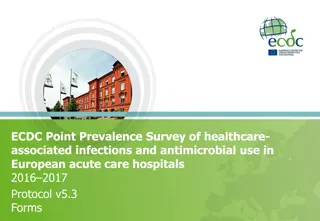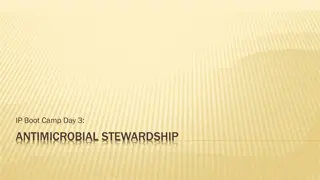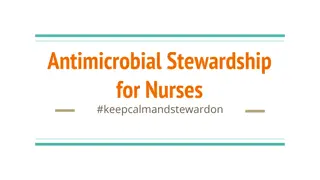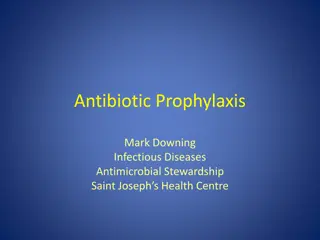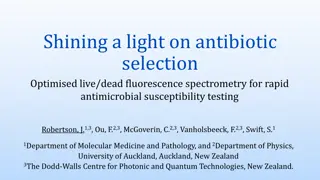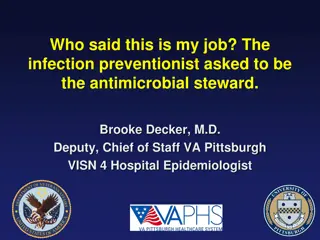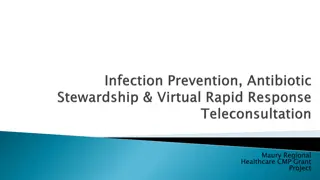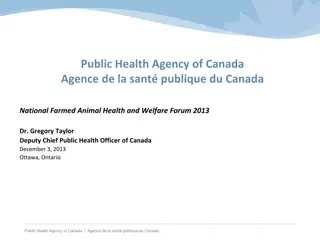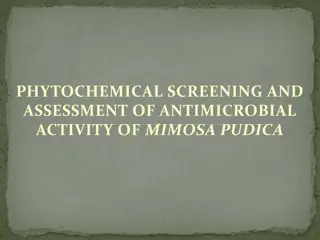Understanding Antimicrobial Stewardship in Healthcare
Exploring the critical aspects of antimicrobial stewardship, including the reasons for antibiotic resistance, considerations for prescribing antibiotics, stewardship checklists, and the role of toolkits in promoting responsible antibiotic use to combat resistance. The importance of monitoring, documentation, and patient-specific factors in antibiotic therapy is emphasized to optimize patient outcomes and combat the global challenge of antimicrobial resistance.
- Antimicrobial Stewardship
- Antibiotic Resistance
- Prescribing Guidelines
- Stewardship Checklist
- Healthcare
Download Presentation

Please find below an Image/Link to download the presentation.
The content on the website is provided AS IS for your information and personal use only. It may not be sold, licensed, or shared on other websites without obtaining consent from the author. Download presentation by click this link. If you encounter any issues during the download, it is possible that the publisher has removed the file from their server.
E N D
Presentation Transcript
Human & Animal Health Case Scenarios James Russell Junior Vice President British Veterinary Association @uttoxeterjames Aoife Hendrick CPhO Clinical Fellow Public Health England @AoifeJHendrick
Why should we bother? Around 38% of patients are on antimicrobials Unnecessary use leads to increased side effects, infections and wastes money Increased resistance locally, nationally and internationally Limited supply of novel antibiotics Financial rewards and penalties (CQUIN, C.Diff, MRSA) Direct benefit to patient outcomes
What is causing resistance? Bacteria evolve to survive Broad spectrum antibiotics Longer durations than required No clear evidence of bacterial infection (viral) inappropriate prescribing Inadequate doses Illogical combinations Patient non-compliance and self medication
What to think about when prescribing? PMHx Side effects DHx and interactions Monitoring Food drug interactions TDM Previous microbiology results Antibiotic Guidelines Investigations required Microbiology advice Samples Duration Allergies Availability Source of infection Formulary Likely organism Cost Route Resistance Dose Frequency of administration
The Stewardship Checklist Does the patient have any allergies? Is the indication documented on the prescription? Is the duration documented on the prescription? Has the treatment been reviewed within 24-72 hrs? Is the plan clearly documented? Does the treatment make sense? Is it appropriate? Is there sufficient supply of the antibiotic? Are levels or samples needed? Avoid missed doses or delays to STAT doses
Antimicrobial Stewardship Toolkits Start Smart then Focus stewardship campaign (PHE) highlighted the importance of stopping antibiotics and shortening duration when infection is not confirmed and the developed toolkits encourage this activity 6
National Early Warning Score (NEWS) NEWS is a tool developed by the Royal College of Physicians which improves the detection and response to clinical deterioration in adult patients and is a key element of patient safety and improving patient outcomes. A score is allocated to physiological measurements: respiration rate oxygen saturation systolic blood pressure pulse rate level of consciousness or new confusion temperature. 7
NICE/PHE Guidance 9 https://www.nice.org.uk/about/what-we-do/our-programmes/nice-guidance/antimicrobial-prescribing- guidelines
WHO AwARe Aims to increase the proportion of global consumption of antibiotics in the Access group to at least 60%, and to reduce use of the antibiotics most at risk of resistance from the Watch and Reserve groups. Antimicrobial Resistance & Stewardship UCL Pharmacy Lecture Dr Diane Ashiru-Oredope/ Aoife Hendrick 1 0
Antibiotic Allergy Status First principle good drug history ensure first line treatment option is available to the patient. Self-reported beta-lactam allergy is common up to 20% of hospitalized patients 10% of the general population in the UK only 1 10% of these patients have evidence of type I hypersensitivity on testing. Amoxicillin and ampicillin are associated with delayed maculopapular rashes in 5 10% of patients particularly in the presence of a viral infection. Childhood Rash There is morbidity, mortality, and economic cost associated with the label of penicillin allergic. Including increased length of stay, increased risk of healthcare associated infections and increased cost. Access Reserve Antibiotics 1 1
Summary of a vets thoughts on AMR James Russell BVetMed MRCVS Aston University 16th November 2019 @uttoxeterjames @BritishVets
One Health @uttoxeterjames @BritishVets
Metaphylaxis @uttoxeterjames @BritishVets
Are vets better than medics? @uttoxeterjames @BritishVets
The wormer experience 94% resistant to white wormers 68% to yellow 50% to clear @uttoxeterjames @BritishVets
The wormer experience No testing metaphylaxis No efficacy testing @uttoxeterjames @BritishVets
Summary thoughts @uttoxeterjames @BritishVets
Final comments? @uttoxeterjames @BritishVets
